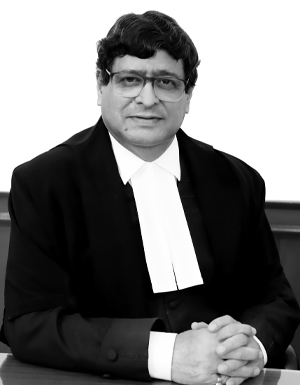
Meet Justice Sudhanshu Dhulia and his Notable Judicial decisions
Justice Sudhanshu Dhulia, born on August 10, 1960, in Uttarakhand, is a sitting judge of the Supreme Court of India, set to retire in August 2025. He previously served as Chief Justice of the Gauhati High Court and as a judge of the Uttarakhand High Court, where he was elevated in 2008 after a distinguished career as a lawyer and state counsel. His family has a strong legal and academic background: his father was a judge of the Allahabad High Court, and his grandfather was a noted freedom fighter and journalist.
Justice Dhulia’s legal journey began at Allahabad High Court, after which he moved to the newly formed Uttarakhand High Court, becoming its first Chief Standing Counsel and later Additional Advocate General. He was designated a Senior Advocate in 2004 before his elevation to the bench. Known for his scholarly approach and patient courtroom demeanor, he has authored over 1,100 judgments across his judicial career.
At the Supreme Court, Justice Dhulia’s work spans criminal, civil, property, and tenancy matters, with 39% of his authored judgments in criminal law. Among his most notable decisions is his dissent in the Karnataka Hijab Ban case, where he emphasized the right to education and personal choice, holding that wearing a hijab in school is a matter of individual liberty and not grounds for exclusion. This judgment highlighted his commitment to constitutional rights and the empowerment of marginalized groups.
Another significant contribution is his opinion in Chander Bhan (d) Through LR Sher Singh v Mukhtiar Singh (2024), where he clarified the doctrine of lis pendens. He held that even when Section 52 of the Transfer of Property Act does not strictly apply, the principle of maintaining the status quo in property disputes should prevail, ensuring that ongoing litigation is not undermined by further transfers.
Justice Dhulia is also noted for his dissent in a Supreme Court case regarding the classification of privately-owned property as “material resources of the community” under Article 39(b) of the Constitution. He cautioned against excessive state intervention and stressed the importance of protecting private property rights.
Throughout his judicial tenure, Justice Dhulia has been recognized for his empathetic hearings, scholarly judgments, and his advocacy for social justice, linguistic diversity, and constitutional values.












comments